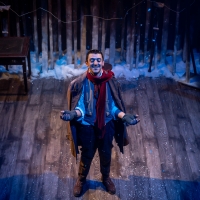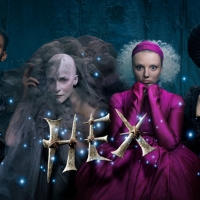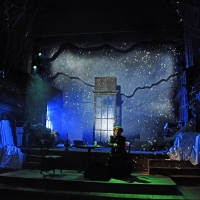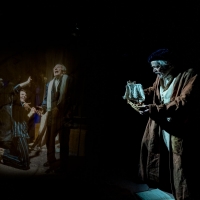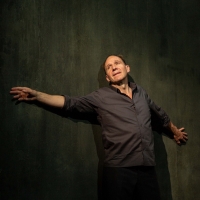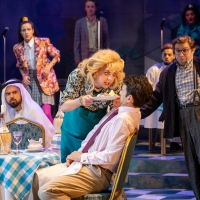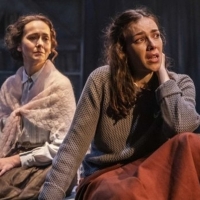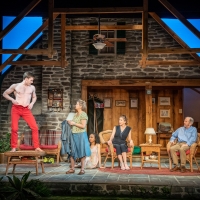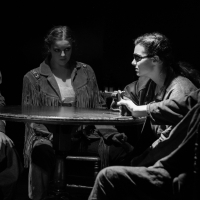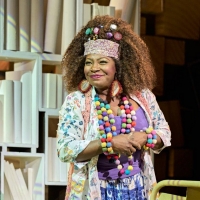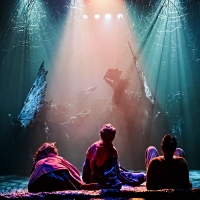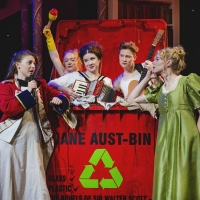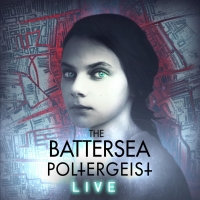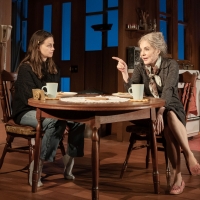Cindy Marcolina - Page 21

Italian export. Member of the Critics' Circle (Drama). Also a script reader and huge supporter of new work. Twitter: @Cindy_Marcolina
December 15, 2021
In the best-case scenario, by the end of the 21st century, the Earth will “only” become warmer by 1.5 degrees Celsius. Realistically, it will be much hotter. Severe heat waves and rising water levels are only two of the main symptoms of this; coral reefs will disappear almost entirely and animal species will go completely extinct. Seas will swallow cities whole. Polar bears will become a fever dream.
December 11, 2021
When the air gets chillier and talks of Christmas plans begin to pop up in conversation, London starts swarming with every variation of A Christmas Carol known to man. From the Old Vic’s now iconic and classy version to Sh!tfaced Shakespeare’s bawdy and boozy one at Leicester Square Theatre, there’s a Carol for everyone. The Park is joining in the fun this year with another take on the Dickensian Victorian tale of greed and ghosts. Surprisingly, it’s unmistakably political. Alexander Knott’s Cratchit takes the novella’s poor, exploited worker and turns him into a hero for our times in a festive tour de force spearheaded by a terrific John Dalgliesh.
December 6, 2021
Right before Hex started its previews this past weekend, we sat down with cast members Kat Ronney and Michael Elcock to talk about the National Theatre's new original musical. Directed by Rufus Norris, with music by Jim Fortune, book by Tanya Ronder and lyrics by Norris himself, the show is a retelling of the popular fairy tale Sleeping Beauty.
December 3, 2021
It doesn’t take much for Wilton’s Music Hall to be atmospheric. The Victorian building, with its balcony, stripping paint, and heartbreakingly beautiful cast-iron pillars, lends itself very well to Christmas ghost stories. All of this, combined with Tom Piper’s ambitious set design and Hayley Egan’s overachieving projections, seems like the perfect production for the theatre’s festive comeback. Too bad The Child In The Snow is a tonally confused and intensely unengaging project.
December 2, 2021
The Sleeping Trees are doing it all. After their phenomenal first online lockdown panto from last year, they’re back not only with an in-person takeover of Battersea Arts Centre, but with an incredible on-demand show too. Catering for all types of audiences and their needs, Sleeping Beauty and the Beast (at the theatre) and Puss in Moon Boots (in living rooms everywhere) couldn’t be more different, but they both share Sleeping Trees’ perfectly brilliant Christmas spirit. Unlikely heroes and evil villains lead to adventures like no others in their utterly unexpected and captivating mash-ups.
December 1, 2021
Oh, how life changes in 20 months. Not quite two years, not quite one and a half. In March 2020, artistic director of Jermyn Street Theatre Tom Littler teamed up with Michael Pennington to deliver Shakespeare’s swansong. That production played for six performances before closing down due to the “unprecedented times” we’re still dealing with. It was this critic’s last show before theatres closed down and everything changed.
November 30, 2021
Rare Earth Mettle doesn’t need any more publicity. Headlines started talking about Al Smith’s play before its previews were cold in the grave, and reviews have flocked in agreement of its generally disappointing outcome. An exploding controversy, a hasty statement from the top floors of the Royal Court, and even quicker name-change later, the production remains a cutting critique that unfortunately loses itself in its search for style and forceful sarcasm.
November 25, 2021
Other than being the source material for the plotless musical Cats and its equally abysmal film, T. S. Eliot was a prolific poet and writer. But the cute but posthumously rendered horrifying felines of his writings have nothing to do with the depths of his reflections on the human race of Four Quartets, which are now brought to the stage again after a previous run in Bath by former evil wizard Ralph Fiennes.
November 24, 2021
“These jokes are 400 years old, help me out here!” Dromio of Syracuse begs the audience at the Barbican. In truth, he doesn't need help. The whole company don't need any help. Director Phillip Breen succeeds in summoning such a direct and resolute style of comedy in his staging of The Comedy of Errors that it feels like Shakespeare might as well be a contemporary writer of ours. The Royal Shakespeare Company’s latest enterprise is a hit, a truly enjoyable, sincerely ha-ha funny production with just a vague dash of pandemic irony.
November 18, 2021
The March sisters seem to spike in popularity every decade or so, due to films, series or feminist movements. Most recently Greta Gerwig turned Louisa May Alcott’s novel into a high grossing blockbuster featuring a stellar cast. Now the Park Theatre have resurrected Little Women in the form of a 16-year-old Broadway musical that nobody seems to remember even though it won Sutton Foster a Tony nomination. History repeats itself. With a book by Allan Knee, music by Jason Howland, and lyrics by Mindi Dickstein, the piece is sadly unmemorable, but the company give their best nonetheless. A list of forgettable songs populate a traditional musical with pacing issues that’s nothing to write home about.
November 16, 2021
It’s diminutive to say that a lot has changed in the past nine years. What are we even saying, a lot has changed in the last two alone! After Vanya and Sonia and Masha and Spike premiered in New Jersey in 2012, it went on to open on Broadway the following year and won a coveted Tony Award for Best Play. In 2019, Christopher Durang’s piece had its debut overseas in Bath with a subsequent London run scheduled for March 2020. We all know what happened next and why we had to wait to see it.
November 16, 2021
The team behind Death of England and its spin-off-slash-standalone-sequel Death of England: Delroy have been busy since their last involvement with the material, with Delroy dramatically closing on press night due to the measure of the second lockdown. Now, Clint Dyer and Roy Williams’s latest collaboration is landing on screen as a hybrid film that deals with the permanent scars that the events in the first instalments left.
November 12, 2021
A town in the middle of nowhere, a violent relationship, a heinous crime, a tell-all letter. Wyoming, 1888. The gold rush came and went in the American state, leaving marks only in the popularity of Belle, the star of the Mermaid brothel. It’s “A story about tyrants and those who survive them” tells one of the five prostitutes who’s going to catch us up with the facts.
November 11, 2021
There aren’t that many plays that deal with grooming and David Mamet’s Oleanna is the one piece that always springs to mind. Even then, we have an older professor accused of sexual harassment by one of his students. What happens when we shift the light and it’s a young boy who reports his sports teacher years later? John Patterson responds to that scenario with a multi-faceted and hard-hitting play. Innocence isn’t the answer to a problem. Once the show is over, it feels like he’s put a picture in front of his audience and now asks to describe it. It demands a discussion over drinks right after.
November 11, 2021
As the celebrations for the 10th anniversary of Matilda The Musical heat up in the West End, we spoke to Landi Oshinowo, who plays Mrs Phelps, Matilda's local librarian, at the Cambridge Theatre. Known for roles such as The Colour Purple, Ain't Misbehavin', and Big Fish, Landi told us all about working with children on and off stage, her favourite lines in the show, and why people love it so much.
November 6, 2021
Samuel Beckett is no stranger to Jermyn Street Theatre. In 2012, Trevor Nunn’s All That Falls went on to become an international hit and in 2020 it saw Beckett Triple Bill with Nunn at the helm again. But times have changed and post-pandemic theatre (although one could say we’re not there yet) - as much as it strives to be the same as before - is different. And Beckett can be very dark. There’s something almost morbid in doing two of his lesser known short plays at the moment, but it works so well.
November 5, 2021
“Remembering is not different from imagining” says Old Mrs Hemlock to the Boy, all grown up now, as he tries to secure his recollection of the past. Neil Gaiman’s book The Ocean at the End of the Lane is bewitching. It holds a deep pull for people of all ages, who find common ground in it. It’s an incredible feat to take everything that the novel is and translate its feeling and atmosphere for the stage. Writer Joel Horwood and director Katy Rudd achieve the impossible.
November 4, 2021
As far as entertainment goes, our multiple lockdowns ended up being characterised by distinct obsessions. There were live workouts in the mornings, sourdough baking, people hunted for pasta and toilet paper, and they watched television. As the second lockdown was knocking on our doors, one more of these dropped on Netflix.
November 1, 2021
Sixty-three Wycliffe Road is a quiet terraced house in Battersea, just south of the River Thames. A stone’s throw from the station, it's an ideal spot for modern real estate standards. But in 1956, life turned into a living nightmare for the Hitchings family.
October 29, 2021
Hampstead Theatre gets back on its feet properly and reopens at full capacity bringing Stockard Channing back on stage, who was last on stage in London at Trafalgar Studios in 2017. The former Rizzo now plays Thelma, Rebecca Night’s Jessie’s elderly mother who lives by herself apparently ignorant of the running of her own home. But Jessie’s had enough of life and announces to her that at the end of the night she's going to shoot herself in her bedroom.
« prev 1 … 18 19 20 21 22 23 24 … 52 next »
Videos



